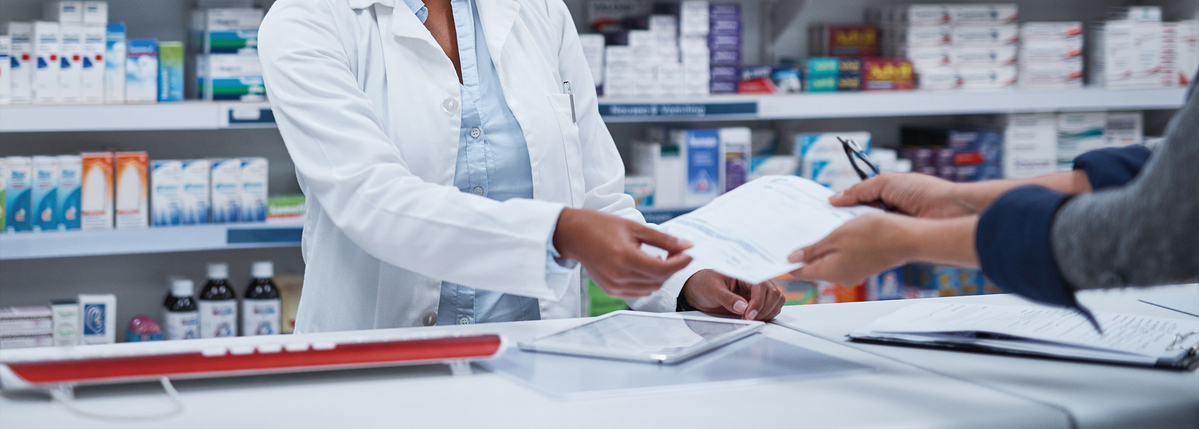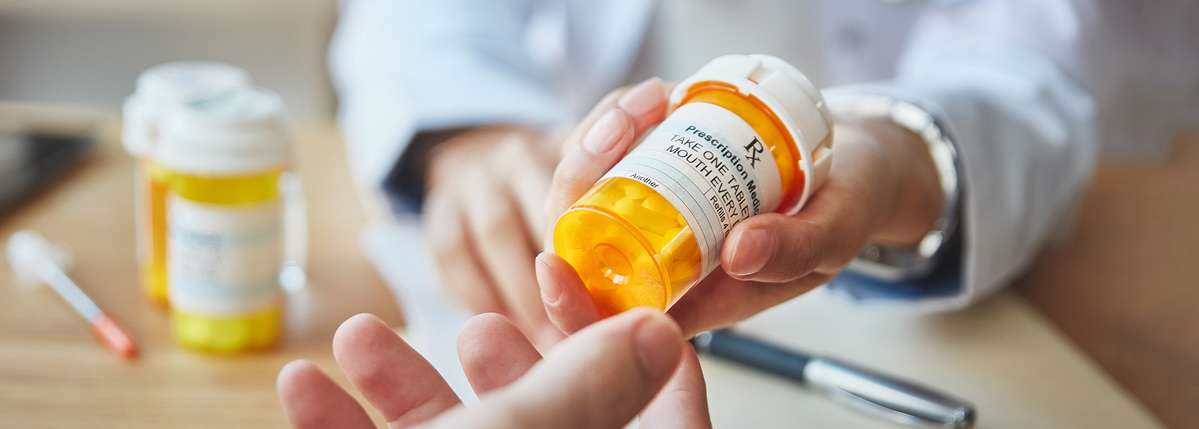What is diabetes remission?
Written by: Ginger Vieira
4 minute read
December 7, 2021
What is the official definition of diabetes remission? We finally have a clear definition of "diabetes remission" and how it differs from "cure" and "reversal".
This educational content is brought to you by the ADA x BT1 Collab.
The following transcript has been edited for length and clarity.
Ginger Vieira: Welcome to Collab Conversations with the American Diabetes Association and Beyond Type 1. My name is Ginger Vieira, and with me today is Dr. Nuha El Sayed, vice president of healthcare improvement at the American Diabetes Association. And today we’re going to talk about diabetes remission, which has been a controversial and kind of confusing term until recently.
Dr. Nuha El Sayed: Thank you for having me. That is a true statement.
There was recently a really big effort to clarify what it means to be in diabetes remission?
Yeah. So a very smart group of people have met from some representatives of the American Diabetes Association (ADA), in the current society, EASD, which is the European Association for the Study of Diabetes. And they got their minds together to define for us what diabetes remission means. There’s been a lot of use of many, many words. Some people want to use the word reversal, but then when you use reversal, does this really give us the true nature of what happens in people with diabetes? And some people thought it’s a cure, but did we really cure diabetes? So they needed to come up with a term that made clinical sense, that is closer to reality and closer to what actually happens in our bodies.
And remission does a really good job of conveying, similar to cancer, it means you don’t have cancer right now, but it could come back. Versus cure implies you’re never going to deal with this again.
Absolutely. Because the word cure was tricky because some people, for example, who had surgery, bariatric surgery to lose weight. They would say cure, but we’ve seen in some studies that not everyone has a durable effect. Many don’t years down the line. So remission is, I think, a more appropriate term. And that’s why this group gave us this consensus statement.
Okay. So what qualifies as remission in type 2 diabetes?
So as it stands today, it is somebody who would have an A1C under 6.5 for three months and on no medications to control glucose. So that is how we’re defining it. And if, for example, for some reason, your A1C is not reliable. And this happens sometimes when people have anemia or have some, what we call hemoglobinopathies, you’re born and your hemoglobin just looks different. So for these people, we can use a fasting plasma glucose cut off. We can even use some of our advanced metrics from continuous glucose monitor (CGM). Which is, this is what’s new in this consensus statement.
Okay. So they have to be under 6.5 for at least three months and not on diabetes medication for at least three months?
It is three months.
Okay. And does maintaining that play into whether you’re in remission or not?
Absolutely. So they followed through, if you’ve read their statement, if you follow through and it basically says that you have to have long-term follow-up and you still have to see your healthcare team. Because we don’t want people to just assume that that’s it, we’re done. Genetically if you’re at risk, you remain at risk. So following up with your healthcare team is really critical.
I’m sure there’s so many people with type 2 who want to be in remission and might be frustrated that they can’t get there, can’t get off their medications. How do you talk to those patients?
So I think in general, we like to adopt SMART goals. So you really have to see where you are today and how can we progress in a way that is both meaningful clinically and also something that is reasonable. We can’t ask somebody who starts walking to run a marathon. That doesn’t make any sense. So you work with each individual patient and you see where they are today and slowly get them to where they need to be.
We have had a lot of patients who started off with multi-dose insulin regimens who have gone on to lifestyle changes. And I have many who are on nothing. They have been in remission for years. So it can be done, but it just has to be done in a smart way, realistic way. And just going in expressing that this is what I want done next month, it doesn’t happen. In some candidates, surgery can have fast results, but even that you have to go through a process.
Right, that’s intense, that’s an extensive process. And there are some people who just, their body truly needs the support from a medication or insulin to help bring their blood sugars to a certain point.
Absolutely. And it is a disease and it progresses, and different patients are at different levels. We have to work with that and accept that.
I think it’s really important for those people to understand that it’s okay if you can’t achieve remission, can’t get your A1C down into that range without support from medications. The most important thing is protecting your body from high blood sugars.
Improvement. We are looking for improvement. And by no means is this consensus’s main aim to say, this is what we should all achieve in our patients. There are patients who will never achieve this.
Right. Even if they’re trying with all their might.
Absolutely. And how much of your pancreas is working, and can it support what you need? And we always have to remember that a 1% reduction in A1C means a lot of reduction in complications. So do not underestimate that.
Right. Going from an eight to a seven, you might still be above your goal, but you’re still down from an eight and that’s a full point.
Yeah. You’re talking 30 to 40 percent reduction in some complications. So we’ll take that. Steps towards where we need to be.
Yes. Cool. Thank you.
Thank you for having me.

Author
Ginger Vieira
Ginger Vieira is an author and writer living with type 1 diabetes, Celiac disease, fibromyalgia and hypothyroidism. She’s authored a variety of books, including “When I Go Low” (for kids), “Pregnancy with Type 1 Diabetes,” and “Dealing with Diabetes Burnout.” Before joining Beyond Type 1 as Digital Content Manager, Ginger wrote for Diabetes Mine, Healthline, T1D Exchange, Diabetes Strong and more! In her free time, she is jumping rope, scootering with her daughters, or walking with her handsome fella and their dog.
Related Resources

You may need to switch your type 2 medications at some point in the year....
Read more

Getting the medications, services and supplies you need to manage your type 2 diabetes should...
Read more

Sadly, not all type 2 diabetes medications, devices and services are covered by health insurance...
Read more

